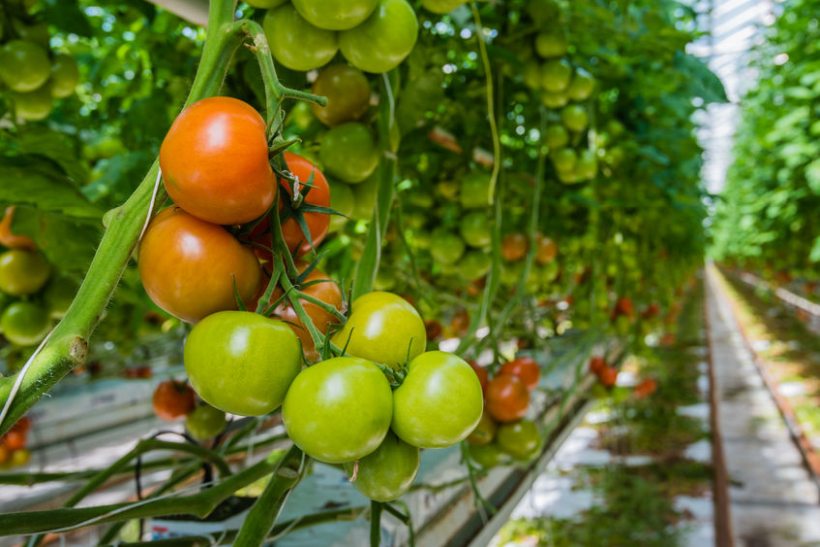
Tomato growers across the UK are collaborating with researchers to explore new sensor technology which could significantly boost yields.
Growers in the Isle of Wight and Yorkshire hope to considerably reduce crop losses in the new Innovative Farmers field lab.
The research aims to achieve a detailed understanding of the water balance within plants in order to improve greenhouse efficiency.
This is the first time sap flow and stem diameter sensors will be trialled in UK tomato production.
The knowledge that growers at APS Produce Ltd hope to gain could significantly reduce tomato losses, improve on-farm efficiency and increase the shelf life of produce.
They are installing the sensors in beef, cherry and organic piccolo tomatoes and the data generated will build a continuous picture of water balances within the plants.
By identifying when water deficit and excess occurs, they can better target irrigation and adjust other greenhouse conditions like ventilation and heating.
Researchers say this should minimise pre-harvest losses caused by fruit splitting and disorders such as blossom end rot, which can otherwise result in losses of up to 10% of total tomato yield.
If these initial trials prove to be successful, researchers say the findings can be applied to many other protected crops including peppers, cucumbers and soft fruit, as well as outdoor annual and perennial crops.
Brian Moralee, grower manager at APS Produce said: “Our data platform provider and the sensor company will help us analyse the results, but we’ve already learnt a lot ourselves.
"Just a couple of weeks in, we noticed that removing the night screen too quickly was causing leaf tip scorch – our theory is that the shock of cooler air caused the stomata to close and reduced transpiration.
"So we slowed down the removal of the screen and are seeing less leaf scorch. If it can work commercially and environmentally, we’ll have a fantastic result.”
The field lab brings together six growers at three sites, with additional research support from ADAS staff, and is co-funded by Innovative Farmers and APS Produce.
The first sensors were installed into beef tomato and piccolo crops on the Isle of Wight in January, and this will be repeated in February on cherry tomatoes in Yorkshire.
At the end of the growing season in November, the triallists will compare this year’s tomato losses with historic records, which will give an indication of the overall impact on yields vs losses.
